Grinding noise when driving – what you should know
Investigate the perplexing reasons behind that irritating grinding noise during your drive.

Every driver is quite familiar with the roar of their engines and the sound from their brakes. So when a strange grinding sound comes from your vehicle. The grinding noise when driving is commonly associated with rotating systems and parts. It can be disconcerting hearing your vehicle make these grinding noises when you start, turn or stop.
It is also pretty unsafe if you continue to drive a car with grinding sounds because you never can tell if the part making the sound will fail at any time. In this article, we will discuss the reasons why you experience grinding noise when driving and how to deal with it.
Why do I hear a grinding noise when I accelerate?
A grinding sound can sometimes sound like a squealing sound depending on the car part it is coming from. Many issues that cause a grinding noise when driving can be found internally in more substantial components. The sound could be magnified or silenced depending on where it is located. There are five common reasons why your car makes a grinding noise when accelerating, and they include;
Transmission problem
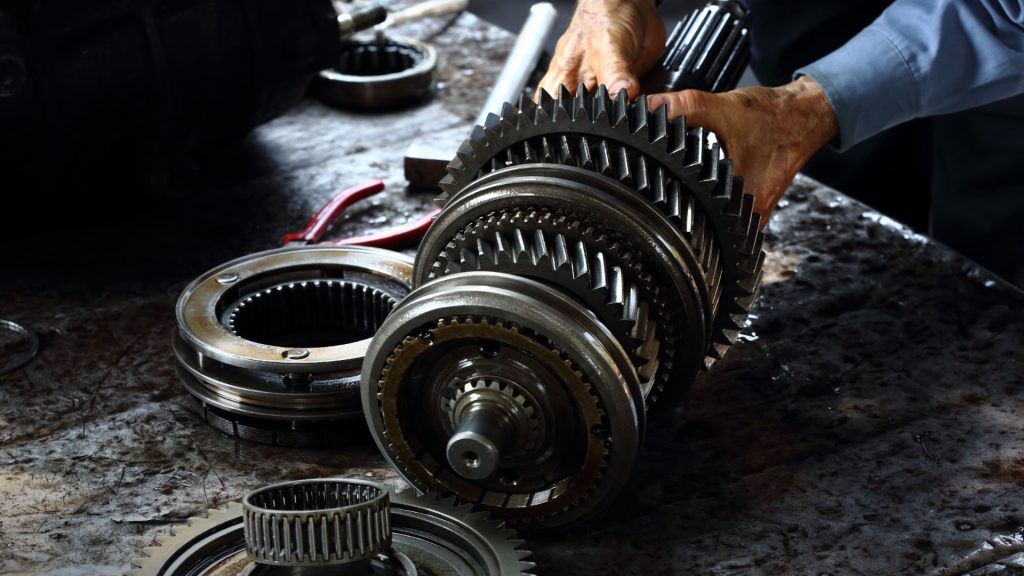
The transmission in your car is equipped with so many moving parts, and this is especially true with automatic transmissions. The transmission’s clutch, flexplate, flywheel, and gears are components that wear down eventually and can cause a grinding noise while accelerating. Th drivetrain is credible for transferring power from the engine to the drive wheels. So there will be numerous items that can be damaged or worn out over time. A grinding sound from your transmission will usually be apparent when you shift gears or accelerate. It shows that your transmission needs to be replaced or repaired. If an automatic transmission makes a grinding noise while accelerating, it suggests that the planetary gear system is worn out. The planetary gear system ensures that the speed of your engine matches the car wheels.
Identifying the type of noise that comes from your vehicle’s transmission is the first step to finding a solution. It could be a grinding noise, squealing, squeaking, or knocking sound in some cases. It is best to have an experienced transmission specialist run a proper diagnosis on the transmission. Transmissions are complex machines that should be repaired or replaced by professionals only. Driving with a grinding or knocking transmission can cause long-term damage that would be very expensive to repair.
Bad wheel bearing
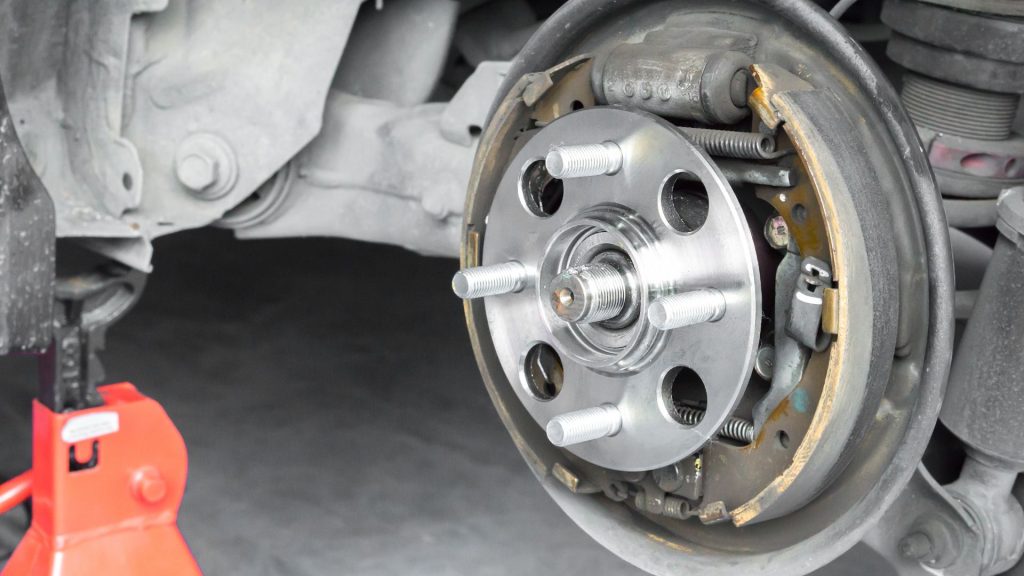
Wheel bearings are like sets of metal balls stored inside a metal ring. They are part of the wheel assembly that connects the wheel to the axle. They help car wheels rotate without creating excessive friction due to the grease in them. Wheel bearings can start to grind against the metal when they go bad or run out of grease.
A bad wheel bearing can cause a noise when turning, and this will become louder when accelerating. This can cause a grinding noise to come from the front wheels. Few vehicles have wheel bearings in the rears, causing the grinding sound to come from the rear wheels. A damaged or worn-out wheel bearing can impact and hamper steering and handling and cause uneven tire wear.
Replacing damaged wheel bearings is relatively easy if you are handy with cars. The wheel, rotor, and the brake caliper will need to be withdrawn, then you locate and remove the worn-out wheel bearing and install a brand new one that is adequately greased. You can also visit an auto shop to replace the wheel bearing. Most wheel-bearing replacements cost about $300, depending on the model and make of your car.
Differential problems
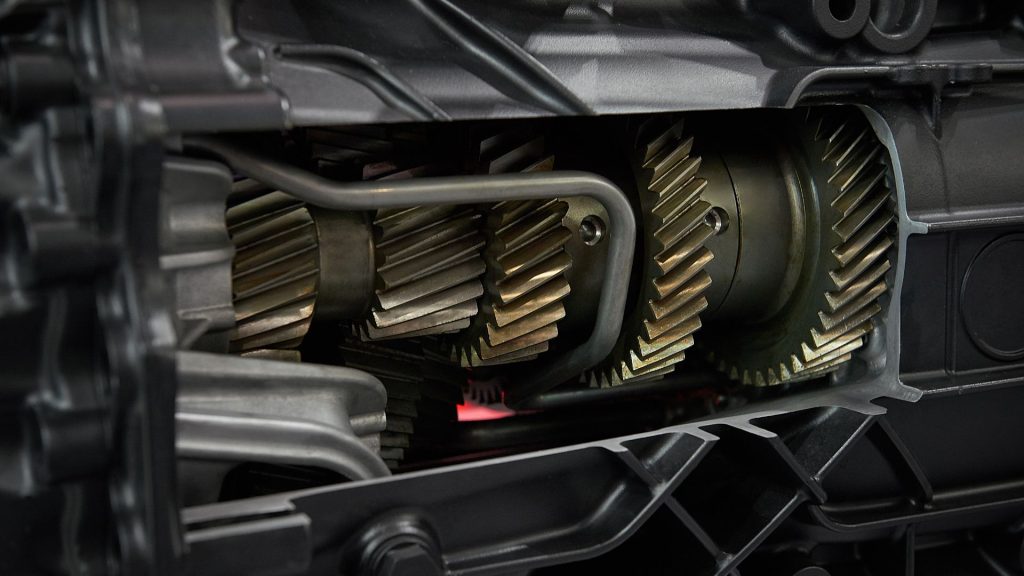
A differential is a component of your drivetrain that allows the car wheels to spin at different speeds. It is found at the front or rear of your car, between each set of wheels, and connects to the engine and transmission through the drive shaft. The differential takes power supplied by the engine and shares it between each wheel, letting them rotate at different speeds. When the differential isn’t working correctly, you might notice a whining sound and then a grinding sound as you accelerate. If this happens, then it means the internal gears of the differential are worn out and have to be replaced.
A differential has to be replaced once it starts making a grinding noise as its gears are most likely to be damaged and too far gone for a repair. It is highly recommended to diagnose the issue of the differential and make the repair on time. This is because of the complicated nature of the components in the differential. On the contrary, if you only notice a whining sound, it is crucial to check your fluid levels to see if your differential fluid is low. Refilling the fluid could get rid of the whining sound and refrain you from having to pay an expensive repair bill.
Worn-out engine mount
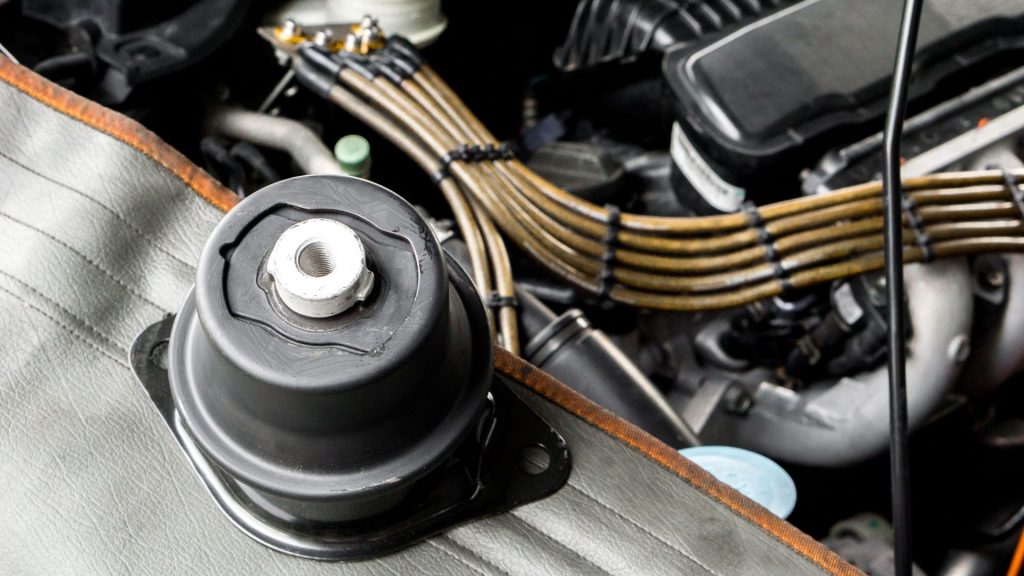
The engine consists of various components that cause your car to make a grinding noise when accelerating. When diagnosing the engine noise, it is essential to note the sound it makes. A grinding sound will be different from a tapping sound or squeaking sound. You can notice a rattling noise if your catalytic converters are damaged or if a component like a radiator isn’t bolted down correctly. A grinding noise from the engine bay is usually a symptom of bad motor mounts.
The engine mounts are metals with urethane or rubber bushings that hoist the engine into the frame. They keep the engine in order and reduce the number of vibrations transferred from the engine to the car. When the bushings are damaged or worn out, you can notice a metal grinding or scraping noise as the vehicle moves while accelerating. The engine mounts are susceptible to corrosion since they are made of metal, leaving them vulnerable to breaking down.
Replacing an engine mount is quite an easy task if you have the correct tools. If you want to have a mechanic replace it, you can expect to pay a couple of hundred dollars for the repair bill. The repair should be a quick job for many cars, and it will help reclaim your vehicle’s performance. Engine mounts are relatively cheap and can be replaced within a couple of hours.
CV joint damage
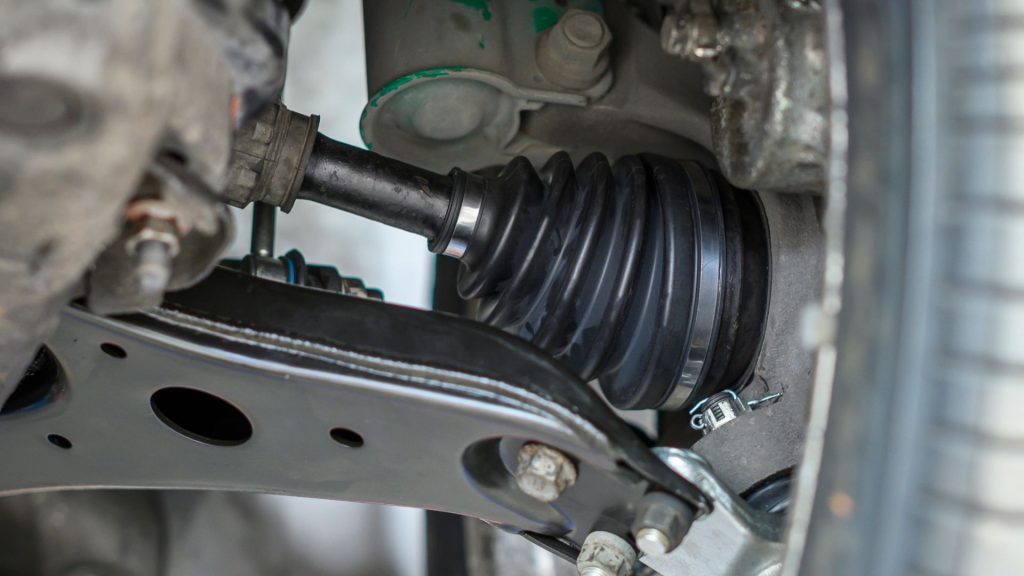
A CV joint is also known as a constant velocity joint. It connects the transmission to the wheels in the front-wheel drive vehicles. It allows for more movement on the drive wheels used for steering. It is a free-floating axle compared to the standard solid axles in rear-wheel drive vehicles. A faulty CV joint could be the reason why a car makes a grinding, clicking, or knocking sound when accelerating at a low speed. If you see grease on the inner edge of your tires or you feel vibrations while driving, it could be a sign of CV joint failure and can cause you to lose control of the vehicle.
The CV joint has to be replaced when worn out since there is no surest way to fix it. It is recommended that you take your vehicle to a professional mechanic to replace a CV joint since it isn’t a simple task. Still, you can choose to replace it yourself if you are mechanically inclined. The price of a new CV joint is relatively low, but the labor cost is a bit expensive and pushes the total repair bill to range from $700 – $1000 in most cases.
Can I drive with grinding noise?
Driving with a grinding noise can increase the potential harm to other components if it isn’t taken care of immediately. In some cases where the engine and transmissions are the major grinding component, it may result in a costly repair bill. How long you can drive with a grinding noise depends on how severe the damage is. You should not ignore the grinding noise and replace the faulty components as soon as possible.
How to diagnose a grinding sound while driving
- Start the car. The grinding sound may begin immediately or at any time during the engine’s operation.
- Raise the bonnet to check if you can hear the grinding sound. Find the power steering pump, alternator, and water pump. Closely examine them to determine where the grinding noise is coming from.
- Listen to each component and check if the noise is coming from one of them.
- Drive the vehicle to test the brakes. Apply the brakes gently as you drive along. If you hear a grinding sound, brake a little harder. The brake pads may be worn if the noise gets worse.
- Make a left and right turn while driving. If the grinding noise gets worse in one direction and improves at the turn, it is most likely a wheel-bearing problem. It would help if you got your vehicle repaired immediately.